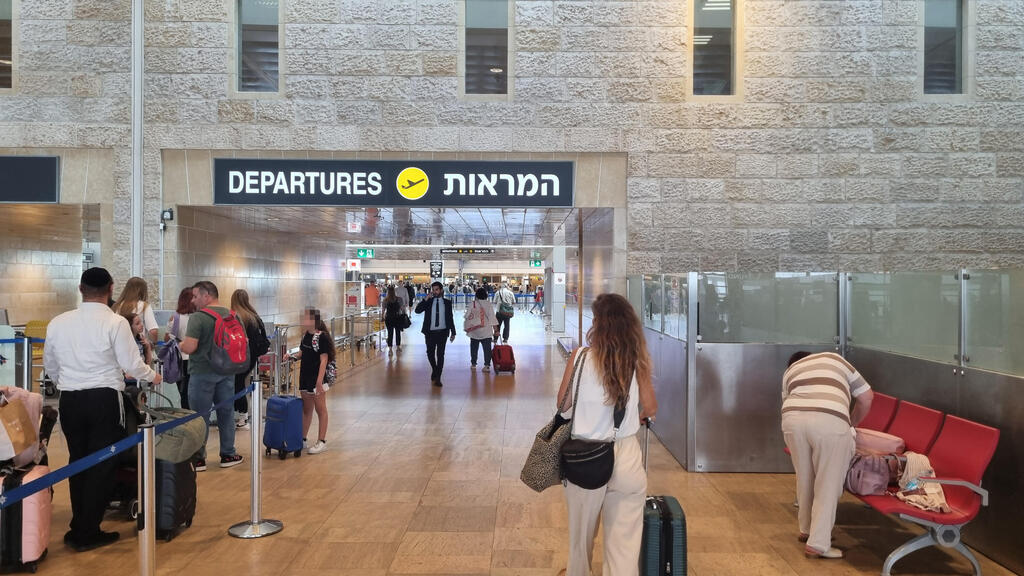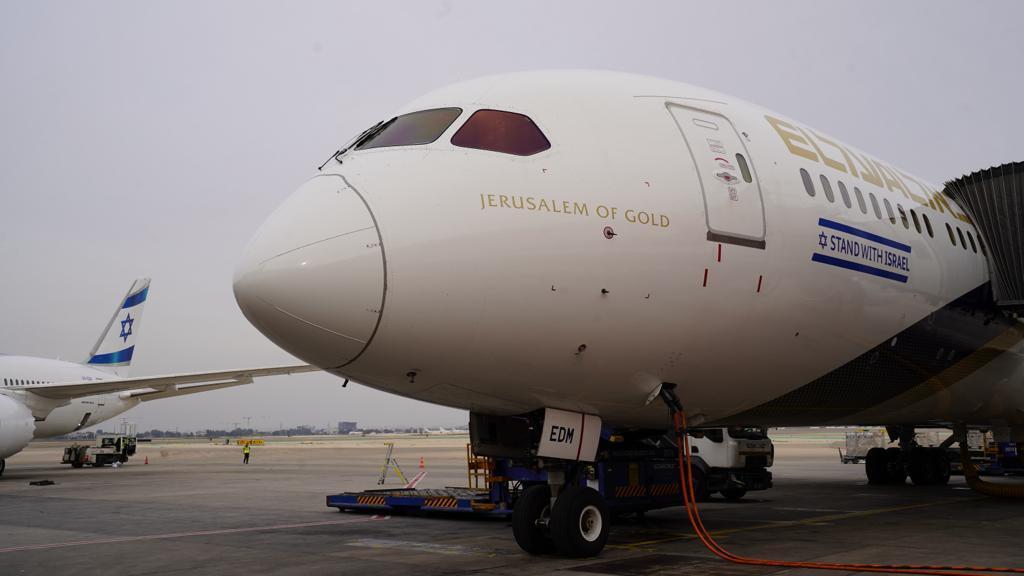A question that's been coming up a lot lately is whether to go ahead with a planned vacation, given the concern that returning to Israel might be difficult. The answer is complex but draws on recent experience from the last Iranian attack against Israel in April.
Israeli airlines have proven that, as long as Israel's airspace isn't closed, they will continue to fly as usual. If the airspace closes, as it did for seven hours during the Iranian attack in April, no aircraft can land in Israel. Remember, some flights operated by Israeli companies are actually run by foreign carriers, which might cancel flights, as has happened in recent days.
Unpredictability with foreign airlines
If your ticket is with a foreign airline, consider two things: cancellations among these companies may increase even without an attack and full airspace closure, simply due to heightened tension and uncertainty. Also, a scenario where the airspace closes, even for a few hours like we experienced almost four months ago, will lead to a large wave of cancellations among most foreign airlines, making it difficult for many Israelis to return from abroad.
It's recommended to buy tickets with cancellation protection and the option to advance or postpone the flight. This usually costs an additional $20 to $30 per ticket, which, in this period of uncertainty, is a negligible expense that could be worthwhile.
What about the law?
Attorney Ehud Fai, who specializes in tourism and aviation, explained to Ynet that there is a specific law covering flight bookings: the Aviation Services Law, which stipulates that if a flight is canceled an airline must refund passengers their money or provide them with an alternative flight ticket (at the passengers' choice). On the other hand, if the flight is canceled by the passenger and not by the airline, the passengers are not automatically entitled to a refund and will be subject to the cancellation policy of each airline.
Booking vacations abroad
If the booking was made through an Israeli travel company or an airline with a representative office in Israel, it is subject to the provisions of the Consumer Protection Law, including the right to cancel the transaction by the consumer. If the booking was made directly through a foreign travel company or an airline without an official representative office in the country, these transactions are not subject to the Consumer Protection Law, and in such a case the passengers will be subject to the specific policy of that company. The obligations of airlines under the law apply to all types of flights, regardless of where you purchased your flight tickets, including charter or low-cost flights.
It's important to note that in cases where flights were canceled due to the security situation, airlines are still obligated to provide passengers with an alternative flight ticket, hotel accommodation, transportation from the airport to the hotel and back, food and drinks. Therefore, if you had to pay these expenses out of pocket, you will be entitled to demand a refund from the airline. Don’t forget to keep the receipts.
There is a distinction between passengers' entitlement to financial compensation due to flight cancellation (or a delay of more than eight hours in the flight's departure) and passengers' entitlement to alternative flight tickets or assistance services (hotel, meals, transportation, etc.). The law stipulates that if the flight was canceled due to circumstances beyond the airline's control, and even if it did everything in its power and it could not prevent the flight cancellation, the airline may be exempt from paying passengers financial compensation.
On the other hand, airlines are still required to provide passengers with both alternative flight tickets and assistance services, even in a situation where the flight was canceled due to circumstances beyond their control, including a state of war. Therefore, if you incurred expenses due to flight cancellation, it is recommended to keep all receipts. For example, if your flight was canceled while you were abroad, and you had to purchase alternative flight tickets at your own expense, you will be entitled to demand a refund from the airline. Also, in a situation where you had to pay for a hotel or meals out of pocket until the alternative flight's departure, you will be entitled to a refund.
To sum up, deciding whether to go on vacation is a personal choice and varies depending on the circumstances, but when considering it, it is important to take into account the possible scenarios and the legal clauses detailed here.



